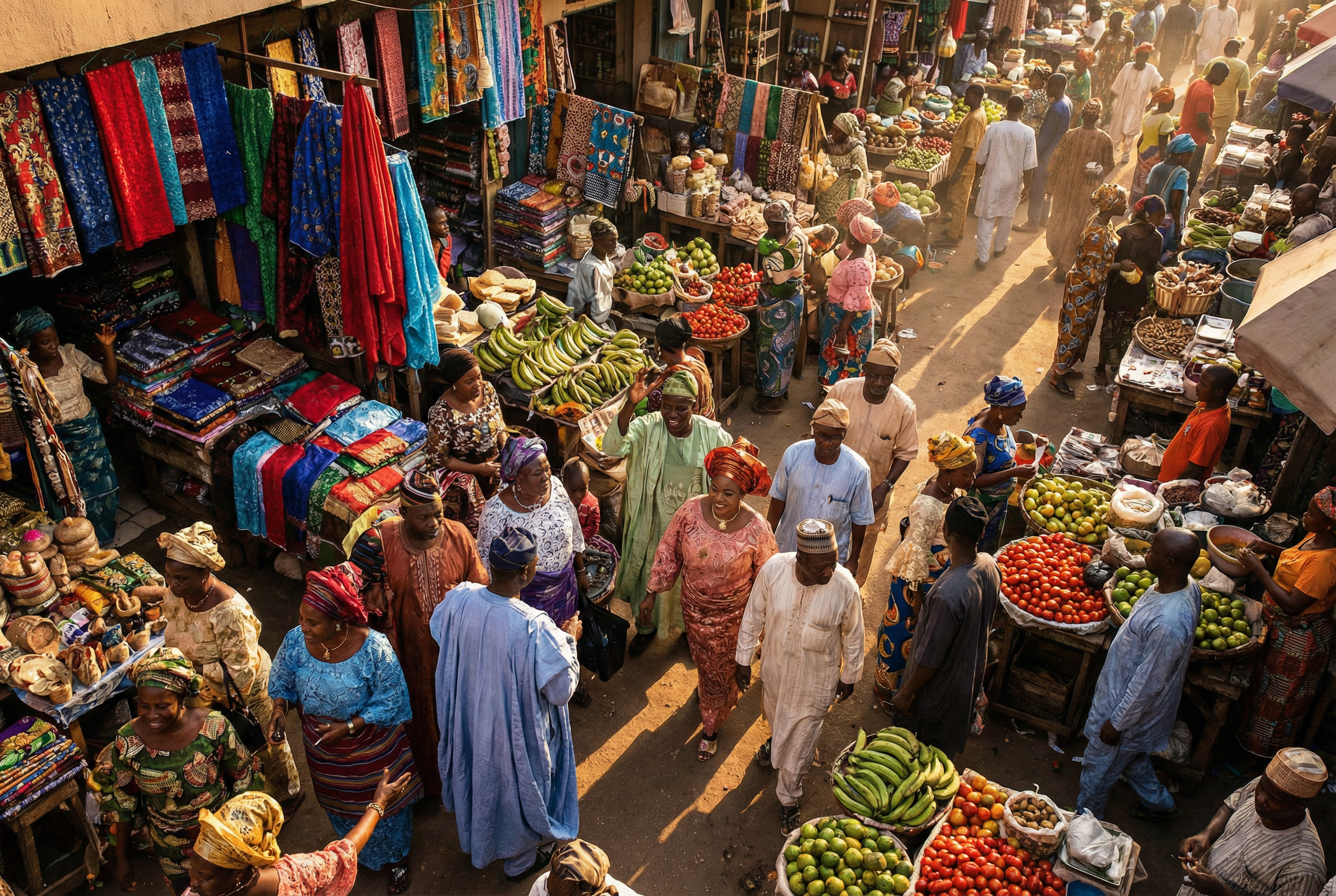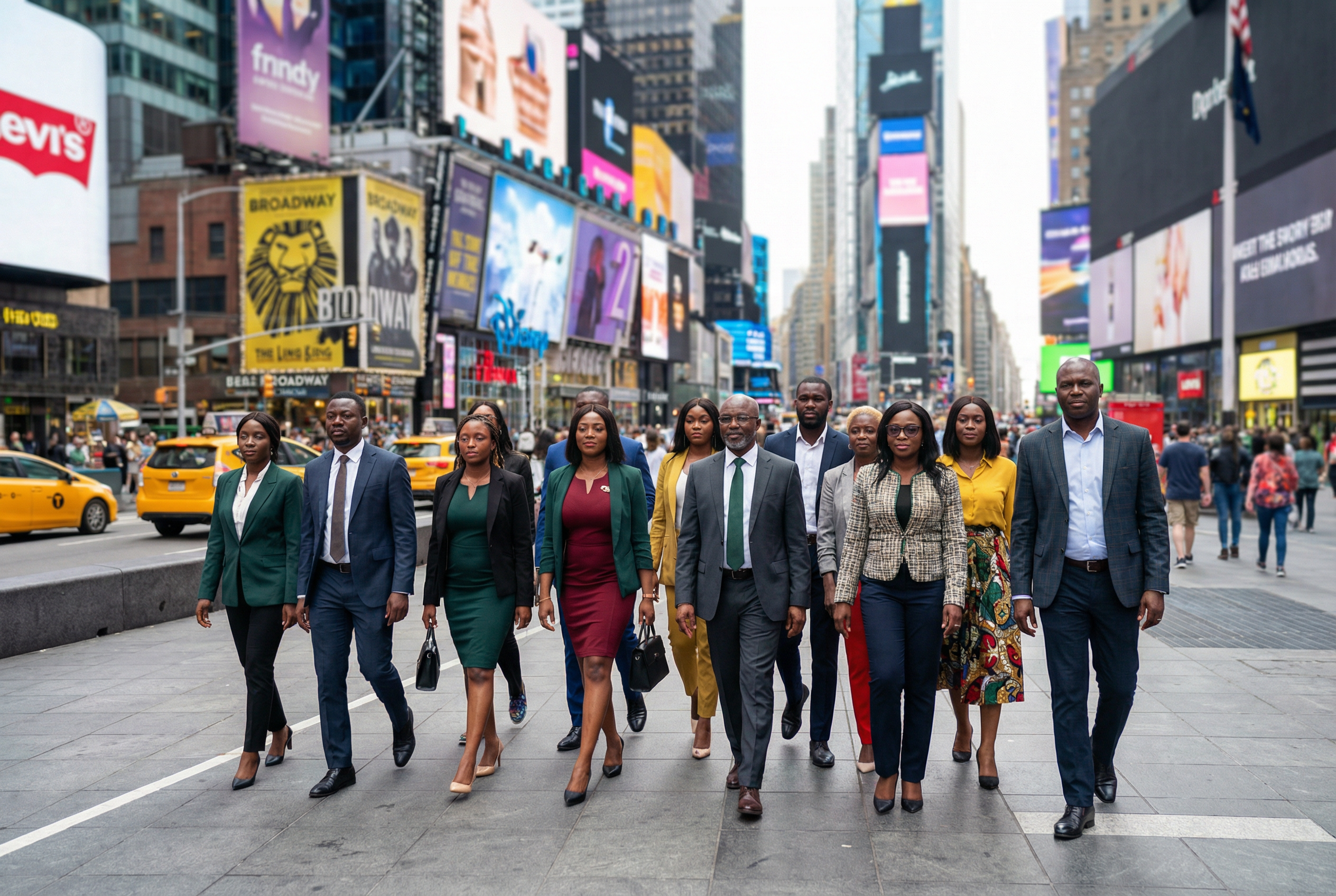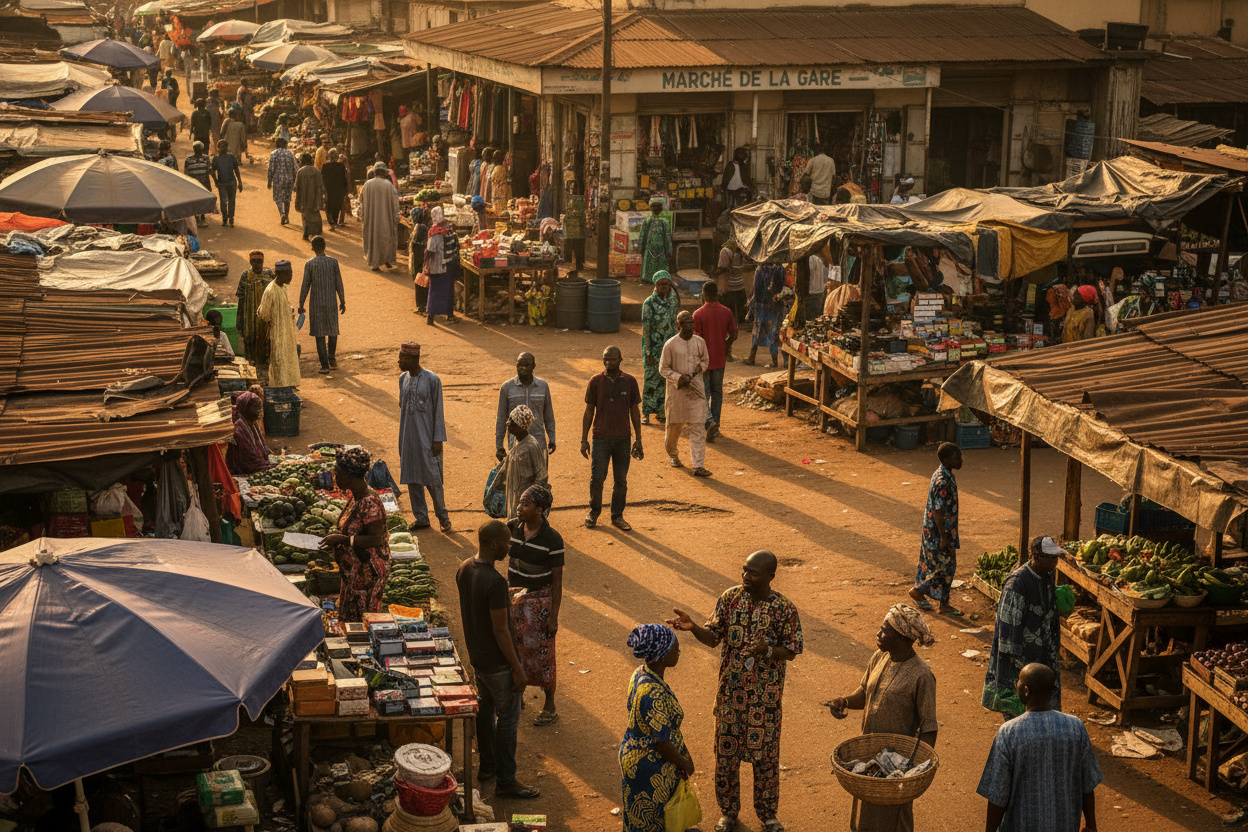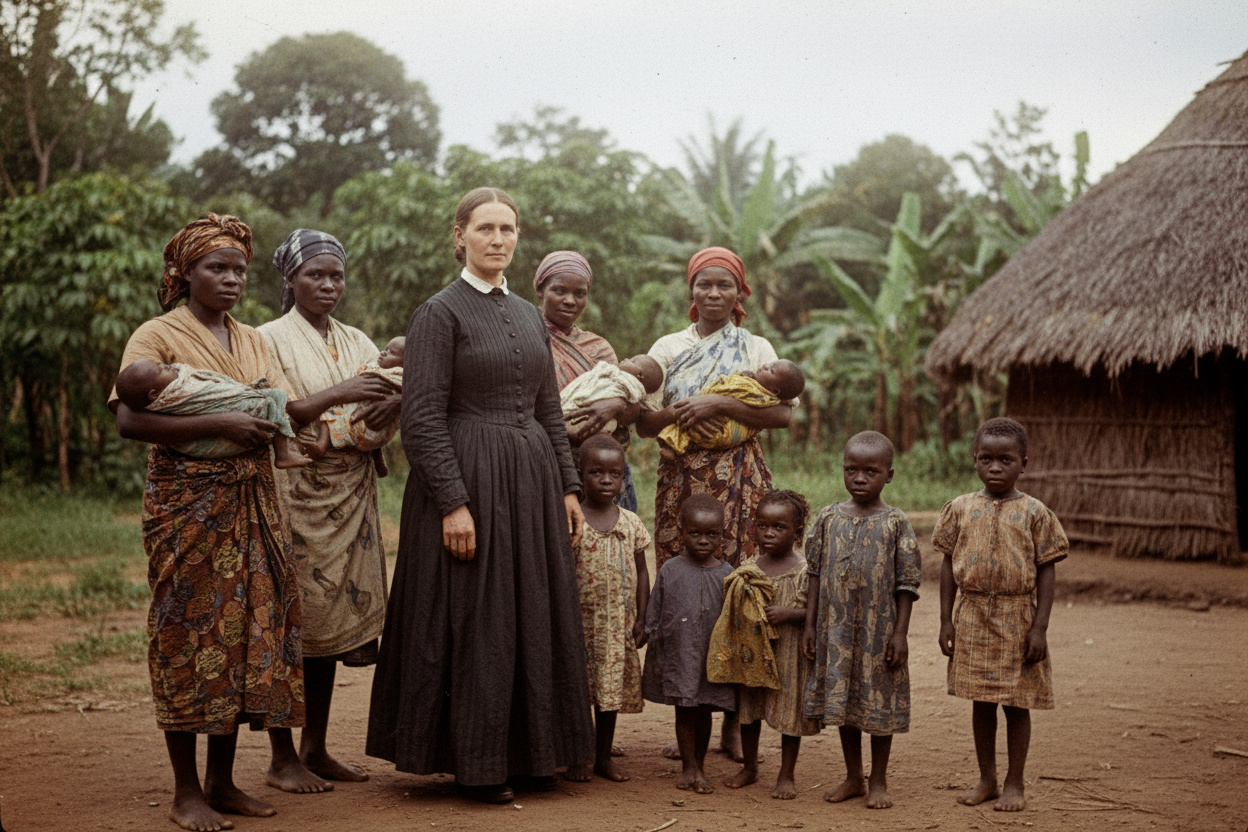I’m absolutely delighted you’ve found your way here, because Nigerian culture is one of those magnificent topics that deserves far more than a superficial glance. After years of writing about African cultures and months of deep research into Nigeria’s cultural tapestry, I can tell you that what is Nigerian culture known for extends far beyond the stereotypes you might encounter in mainstream media. This article represents the culmination of extensive research, countless conversations with Nigerians from all 36 states, and a genuine passion for understanding what makes this West African nation so utterly captivating.
Nigeria stands as Africa’s most populous nation, and its cultural influence ripples across the entire continent and beyond. From the infectious rhythms of Afrobeats that dominate global charts to the intricate beauty of traditional textile work, Nigerian culture commands attention and respect on the world stage.
But here’s what really fascinates me: Nigerian culture isn’t a monolithic entity. It’s rather like a vibrant marketplace where over 250 ethnic groups each bring their unique flavours, languages, and traditions to create something extraordinarily rich and complex.
The Distinctive Character of Nigerian Culture
What is special about Nigerian culture? Let me paint you a picture that goes beyond the tourism brochures.
Nigerian culture operates on multiple levels simultaneously. There’s the pan-Nigerian identity that unites people around shared experiences (like the collective groaning over fuel prices or the national obsession with football), and then there are the deeply rooted ethnic identities that connect people to ancestral traditions spanning centuries.
The National Council for Arts and Culture works tirelessly to preserve and promote this cultural heritage, recognising that Nigeria’s diversity is its greatest strength. What strikes me most is how Nigerians navigate these multiple identities with remarkable fluidity. A Lagos businessman might wear a perfectly tailored Western suit during the week, then don elaborate traditional Agbada robes for weekend festivities without any sense of contradiction.
Food culture alone tells you volumes about Nigerian specialness. Have you ever experienced the communal joy of gathering around a steaming pot of Jollof rice at a family celebration? The debates about whose state makes the best Jollof could fuel academic conferences! (And trust me, I’ve witnessed some heated discussions that nearly came to blows over this sacred topic.)
Nigerian hospitality is legendary. There’s an unwritten rule that no guest leaves your home hungry, and it’s perfectly normal for neighbours to share meals across compound walls. This sense of community and interconnectedness permeates everything.
The oral tradition remains incredibly strong too. Storytelling isn’t just entertainment in Nigeria; it’s how wisdom passes between generations, how history stays alive, and how moral lessons embed themselves in young minds. Elders command respect not just for their age but for the knowledge they carry.
Global Recognition and Nigerian Excellence
What are Nigerians most known for on the international stage? The answer might surprise you with its breadth.
Entertainment and Creative Arts
Nollywood has quietly become the world’s second-largest film industry by volume, producing over 2,500 films annually. That’s not a typo! The cinematic revolution that began in the 1990s tells African stories from African perspectives, and the industry generates billions of Naira whilst employing millions. When I first discovered Nollywood films years ago, I was struck by their raw energy and authentic storytelling, even when production budgets were modest.
Afrobeats has conquered global music charts. Artists like Burna Boy, Wizkid, and Davido sell out stadiums worldwide. The genre’s infectious rhythms blend traditional Nigerian sounds with contemporary production, creating something entirely fresh yet deeply rooted.
Nigerian literature boasts international heavyweights. Chinua Achebe’s “Things Fall Apart” remains one of the most translated and read African novels globally. Contemporary writers like Chimamanda Ngozi Adichie have won prestigious international awards and shaped global conversations about identity, feminism, and African narratives.
Entrepreneurship and Innovation
Nigerians possess an entrepreneurial spirit that borders on legendary. The informal economy thrives through sheer ingenuity and determination. From the tech startups in Lagos’s Yaba district (nicknamed “Yaba-con Valley”) to market traders who’ve built empires from single stalls, the hustle mentality runs deep.
The tech scene deserves special mention. Nigerian fintech companies are revolutionising how Africans handle money, with innovations spreading across the continent. The Federal Ministry of Information and Culture has increasingly recognised the tech sector’s contribution to Nigeria’s cultural and economic landscape.
Academic Achievement
Nigerian academics excel globally. You’ll find Nigerian professors, doctors, and researchers at top institutions worldwide. The emphasis on education runs deep in Nigerian families, where parents often make tremendous sacrifices to ensure their children receive quality schooling.
Sports Excellence
Football (never call it soccer in Nigeria!) generates immense passion. The Super Eagles have rabid supporters, and every four years during the World Cup, the entire nation effectively shuts down to watch matches. Nigerian athletes also excel in athletics, with sprinters regularly competing at Olympic levels.
Fashion and Style
Nigerian fashion designers are making serious waves internationally. The bold patterns, rich colours, and masterful tailoring of traditional Nigerian clothing have influenced global fashion trends. Ankara prints have gone from local markets to international runways, with fashion weeks in Lagos rivalling those in Paris or Milan for creativity and flair.

The Five Fundamental Elements of Nigerian Culture
What are the five elements of culture in Nigeria? Let me break this down in a way that makes practical sense, because understanding these pillars helps you grasp the entire cultural framework.
1. Language and Communication
Nigeria hosts over 500 languages, though English serves as the official language (a colonial hangover, admittedly). The three major languages are Hausa, Yoruba, and Igbo, each spoken by tens of millions.
But here’s where it gets fascinating: Nigerian Pidgin English has evolved into a lingua franca that bridges ethnic divides. It’s not “broken English” as some dismissively claim, rather it’s a sophisticated creole language with its own grammar rules and expressive power. When you hear “How far?” (meaning “How are you?”) or “No wahala” (“No problem”), you’re experiencing Pidgin’s beautiful efficiency.
2. Religious Beliefs and Practices
Religion shapes daily life profoundly in Nigeria. The country splits roughly between Christianity in the south and Islam in the north, with traditional African religions still practised (sometimes alongside the major faiths).
Religious observance isn’t casual here. Churches and mosques overflow during services. Religious festivals like Eid and Christmas bring entire communities together. The National Orientation Agency promotes religious tolerance whilst acknowledging faith’s central role in Nigerian identity.
What interests me particularly is how traditional beliefs coexist with Christianity and Islam. Many Nigerians maintain cultural practices rooted in ancestral traditions whilst identifying as Christian or Muslim, creating a unique syncretic approach to spirituality.
3. Family Structure and Social Organisation
The extended family forms the bedrock of Nigerian society. In traditional settings, you don’t just have parents and siblings; you have a vast network of aunts, uncles, cousins, and distant relatives who all play active roles in your life.
Respect for elders is non-negotiable. Children kneel or prostrate when greeting older people (the specific gesture varies by ethnic group). Age brings authority and wisdom in Nigerian culture, and challenging an elder publicly is deeply frowned upon.
Communal responsibility means that if one family member succeeds, they’re expected to support others. This can be both beautiful and burdensome. The successful businessman who puts ten nephews through university exemplifies this principle in action.
4. Traditional Arts and Expression
Nigerian traditional arts encompass incredible diversity. Each ethnic group has distinctive artistic traditions.
Yoruba beadwork and bronze casting from Ile-Ife display technical mastery dating back centuries. Igbo masks and sculptures serve ceremonial purposes whilst showcasing remarkable artistry. Hausa leather work and embroidery demonstrate meticulous craftsmanship.
Music and dance aren’t separate from daily life; they’re woven into ceremonies, celebrations, and even work. Every occasion has its appropriate rhythms, from birth celebrations to funeral rites.
5. Economic Systems and Trade
Traditional Nigerian economic systems emphasised communal support and reciprocal relationships. Markets served as both commercial hubs and social centres where news spread and relationships formed.
The modern economy blends traditional practices with contemporary capitalism. You’ll find ancient apprenticeship systems operating alongside modern corporate structures. The market women who dominate retail trade wield considerable economic and even political influence.
Cultural Elements Comparison Table
| Cultural Element | Traditional Expression | Modern Adaptation | Regional Variation |
|---|---|---|---|
| Language | 500+ indigenous languages | English, Pidgin as bridges | Hausa (North), Yoruba (Southwest), Igbo (Southeast) |
| Religion | Ancestral worship, traditional beliefs | Christianity, Islam, syncretic practices | Muslim-dominant North, Christian-dominant South |
| Family Structure | Extended families, communal living | Nuclear families in cities, extended ties maintained | Collectivist across all regions |
| Arts | Oral traditions, indigenous crafts | Nollywood, Afrobeats, contemporary art | Distinct ethnic artistic styles |
| Economy | Barter, communal labour | Mixed formal/informal economy | Agriculture (North), Commerce (South) |
This table illustrates how Nigerian culture simultaneously honours tradition whilst embracing modernity, creating dynamic tension that keeps the culture vibrant and evolving.
Why Cultural Understanding Matters
What are five importances of culture? This question deserves serious attention because understanding culture’s role helps us appreciate why preservation and celebration matter so deeply.
Identity Formation and Belonging
Culture provides the framework for understanding who you are. A Nigerian child growing up learns their ethnic identity, their family’s history, their responsibilities to community, and their place in the broader national narrative. This sense of belonging creates psychological security and pride.
I’ve watched Nigerian children in diaspora communities desperately trying to maintain connections to their heritage, learning Yoruba or Igbo online, cooking traditional foods with their parents, attending cultural events. That yearning speaks to culture’s power in anchoring identity.
Social Cohesion and Unity
Despite Nigeria’s diversity (which sometimes causes friction, let’s be honest), shared cultural values bind people together. The respect for elders, the emphasis on community, the celebration of achievement – these common threads create unity amidst diversity.
Cultural festivals bring people together across ethnic lines. When Lagos hosts celebrations that draw thousands or when traditional cuisine brings families together, Nigerians from all backgrounds participate and celebrate.
Economic Development and Opportunity
Culture drives economics in profound ways. The creative industries generate billions of Naira and employ millions. The film industry alone has created a massive employment ecosystem beyond just actors and directors. Cultural tourism brings foreign currency. Traditional crafts support countless artisans and their families.
Understanding cultural preferences helps businesses succeed. Why do you think companies invest heavily in culturally relevant advertising during festive periods? Because cultural resonance sells.
Preservation of Knowledge and Wisdom
Traditional Nigerian cultures contain accumulated wisdom about agriculture, medicine, conflict resolution, and sustainable living. Much of this knowledge exists only in oral traditions, making its preservation crucial.
Herbal medicines that sustained communities for generations are now being studied by pharmaceutical researchers. Traditional conflict resolution mechanisms offer alternatives to overwhelmed court systems. This indigenous knowledge deserves respect and documentation.
International Influence and Soft Power
Nigerian culture shapes global perceptions of Africa and Africans. When Burna Boy wins a Grammy or Chimamanda’s books top bestseller lists, Nigeria’s international standing rises. This cultural soft power opens doors for diplomacy, trade, and collaboration.
The global appetite for Nigerian culture creates opportunities. Fashion designers find international markets. Film-makers attract foreign investment. Musicians tour worldwide. Culture becomes currency in the global marketplace.
How to Engage with Nigerian Culture Authentically
Want to truly appreciate Nigerian culture rather than just observe from a distance? Here’s your practical guide, drawn from years of cultural immersion and countless learning experiences (including some embarrassing missteps along the way!).
1. Start with Food
Find a Nigerian restaurant or, better yet, befriend a Nigerian who’ll invite you for home-cooked meals. Food is culture on a plate. Try Jollof rice, Egusi soup, Suya, Pounded yam with different soups. Ask about ingredients and preparation methods.
Don’t be surprised if portions are generous. Nigerian hospitality means feeding you until you can’t move!
2. Learn Basic Greetings
Master simple phrases in major languages. “Sannu” (Hausa), “Bawo ni” (Yoruba), or “Kedu” (Igbo) for “How are you?” shows respect and opens doors. Nigerians light up when foreigners attempt their languages, even imperfectly.
3. Attend Cultural Events
Look for Nigerian cultural festivals, film screenings, or concerts in your area. Lagos hosts incredible events, but Nigerian communities worldwide organise celebrations. Independence Day (October 1st) celebrations offer excellent entry points.
4. Respect Social Protocols
Learn the basics: greet elders properly, remove shoes when entering homes if requested, accept offers of food (or explain politely why you can’t), don’t point with one finger, use your right hand for giving and receiving.
These aren’t arbitrary rules; they’re expressions of respect built over generations.
5. Engage with Nigerian Media
Watch Nollywood films (platforms like Netflix now carry them). Listen to Afrobeats playlists. Read Nigerian authors. Follow Nigerian news sources. This immersion builds understanding that superficial encounters can’t provide.
6. Ask Questions with Genuine Curiosity
Nigerians generally enjoy sharing their culture with interested people. Ask about traditions, festivals, family structures, beliefs. Just approach with humility rather than judgment.
I’ve learned more from casual conversations with Nigerian friends than from any textbook, because they shared personal stories that brought cultural concepts to life.
Understanding Nigerian Culture: A Comprehensive Overview
So, what is Nigerian culture known for when we bring all these threads together? Let me answer this directly and comprehensively.
Nigerian culture is fundamentally known for its remarkable diversity unified under a single national identity, its vibrant creative expressions that dominate African entertainment, its entrepreneurial spirit that drives innovation despite challenges, its deep-rooted respect for community and family, and its growing global influence across multiple sectors including music, film, literature, fashion, and technology. The culture embodies a unique fusion of over 250 ethnic traditions, creating a dynamic society where ancient customs coexist with modern ambitions, where traditional values shape contemporary innovations, and where Nigerians maintain fierce pride in their heritage whilst actively shaping global culture. Key entities closely associated with Nigerian culture include Nollywood (Africa’s prolific film industry), Afrobeats (the globally influential music genre), Jollof rice (the beloved national dish that sparks friendly regional rivalries), traditional attire like Agbada and Ankara prints, Nigerian Pidgin English (the unifying lingua franca), the Super Eagles (Nigeria’s passionate football following), and cultural icons like Chinua Achebe, Fela Kuti, and contemporary artists who carry the cultural torch forward.
This cultural richness stems from Nigeria’s unique position as Africa’s most populous nation and its history as a crossroads of trade, migration, and cultural exchange spanning centuries.
Exploring Related Aspects of Nigerian Culture
Understanding Nigerian culture becomes even richer when you explore how different cultural elements intersect and influence each other. If you’re curious about how traditional practices manifest in contemporary life, I’d recommend exploring my previous article examining how marriage traditions reflect broader cultural values, where bride price negotiations and elaborate ceremonies demonstrate the communal nature of Nigerian society. Additionally, my piece on traditional Nigerian dress and fashion reveals how clothing choices communicate identity, status, and cultural heritage across Nigeria’s diverse ethnic groups, showing how fashion serves as a visible expression of the cultural values we’ve discussed throughout this article.
Wrapping Up: Celebrating Nigerian Cultural Richness
Nigerian culture represents far more than colourful festivals and catchy music, though those elements certainly add flavour! It’s a living, breathing entity that shapes millions of lives daily whilst influencing global culture in ways both obvious and subtle.
What strikes me most after years of studying and experiencing Nigerian culture is its resilience and adaptability. Nigeria has weathered colonialism, civil war, economic challenges, and political turbulence, yet the culture remains vibrantly alive, constantly evolving whilst maintaining connections to ancestral traditions.
The secret lies in this balance. Nigerians don’t see tradition and modernity as opposing forces but as complementary elements. A young tech entrepreneur in Lagos can embrace cutting-edge innovation whilst deeply honouring cultural obligations to family and community. A fashion designer can create contemporary pieces whilst drawing inspiration from centuries-old textile traditions.
Nigerian culture teaches us valuable lessons about community, resilience, creativity, and pride. It demonstrates how diversity can strengthen rather than weaken a nation when people find common ground whilst celebrating differences.
As you’ve journeyed through this exploration of Nigerian culture, I hope you’ve gained appreciation for its complexity, depth, and global significance. Whether you’re Nigerian yourself, connected to Nigeria through family or friendship, or simply culturally curious, understanding Nigerian culture enriches your perspective on human creativity and social organisation.
Key Takeaways:
- Nigerian culture blends over 250 ethnic traditions into a unified national identity that celebrates diversity whilst maintaining shared values around family, community, and respect for elders.
- The country’s creative industries (Nollywood, Afrobeats, literature, fashion) have achieved global influence, demonstrating how Nigerian cultural expressions resonate far beyond Africa’s borders.
- Understanding Nigeria’s five cultural elements (language, religion, family structure, arts, and economic systems) provides essential context for appreciating how tradition and modernity coexist in contemporary Nigerian life.
Frequently Asked Questions About Nigerian Culture
What is Nigerian culture known for?
Nigerian culture is known for its extraordinary ethnic diversity, vibrant entertainment industries (particularly Nollywood and Afrobeats), warm hospitality, rich culinary traditions, and strong emphasis on family and community bonds. It represents a dynamic fusion of traditional values and contemporary innovations that has gained significant global influence.
What makes Nigerian culture unique compared to other African cultures?
Nigeria’s cultural uniqueness stems from its position as Africa’s most populous nation with over 250 ethnic groups, creating unprecedented diversity within a single country. The culture successfully balances multiple ethnic identities with a unified national identity, whilst producing globally influential entertainment and creative exports that other African nations haven’t matched at similar scale.
How does religion influence Nigerian culture?
Religion profoundly shapes Nigerian daily life, social interactions, moral frameworks, and major life decisions, with Christianity and Islam coexisting alongside traditional African spiritual practices. Religious festivals mark the calendar, houses of worship serve as community centres, and many Nigerians seamlessly blend faith-based beliefs with cultural traditions inherited from ancestors.
Why is family so important in Nigerian culture?
The extended family system provides economic support, emotional security, childcare, elder care, and social networking opportunities that government systems often don’t adequately provide in Nigeria. Family obligation extends beyond immediate relatives to include distant cousins, in-laws, and even community members, creating safety nets that help individuals navigate economic uncertainties.
What are the three major ethnic groups in Nigeria?
The Hausa-Fulani (predominantly in Northern Nigeria), Yoruba (in Southwestern Nigeria), and Igbo (in Southeastern Nigeria) constitute the three largest ethnic groups, collectively representing roughly 60% of Nigeria’s population. Each group maintains distinct languages, traditional governance systems, religious practices, artistic expressions, and cultural customs that significantly influence regional character and national culture.
How has Nigerian culture influenced global entertainment?
Nigerian culture has revolutionised African representation in global entertainment through Nollywood’s prolific film production, Afrobeats’ domination of international music charts, and Nigerian authors winning prestigious literary awards. These cultural exports present authentic African narratives, challenge Western stereotypes, and have created new markets for African creative content worldwide.
What is Nigerian Pidgin English?
Nigerian Pidgin is a creole language with English vocabulary and African grammatical structures that serves as a lingua franca bridging Nigeria’s linguistic diversity. It’s spoken by approximately one-third of Nigeria’s population across ethnic and class lines, functioning as a unifying language that transcends the barriers created by Nigeria’s 500+ indigenous languages.
How do Nigerians balance tradition and modernity?
Nigerians navigate tradition and modernity by maintaining dual identities where they honour ancestral customs during ceremonies and family events whilst embracing contemporary lifestyles in education, business, and technology. This fluid movement between traditional and modern contexts (wearing business suits weekdays and traditional attire weekends, for example) demonstrates cultural adaptability rather than contradiction.
What role does food play in Nigerian culture?
Food serves as a cornerstone of Nigerian hospitality, family bonding, cultural identity, and social celebration, with regional dishes reflecting ethnic heritage and shared meals reinforcing community ties. Specific foods mark important occasions, debates over dish preparation methods (particularly Jollof rice) create playful regional rivalries, and refusing food offers can be considered disrespectful in many Nigerian contexts.
Why is respect for elders so important in Nigerian culture?
Elder respect reflects traditional African values where age represents accumulated wisdom, life experience, and spiritual closeness to ancestors who guide the living. Elders serve as repositories of cultural knowledge, mediators in conflicts, and decision-makers on important family matters, making their authority essential for maintaining social order and cultural continuity.
How does Nigerian culture approach entrepreneurship?
Nigerian entrepreneurial culture emphasises hustle mentality, creative problem-solving, informal business networks, and perseverance in the face of infrastructure challenges and economic uncertainty. The informal economy thrives through ingenuity, with entrepreneurs often starting businesses with minimal capital and building success through determination, relationship-building, and adaptive strategies.
What are the main cultural festivals in Nigeria?
Major Nigerian festivals include Independence Day (October 1st), Durbar festivals in Northern Nigeria, Eyo Festival in Lagos, Calabar Carnival, New Yam Festivals across Eastern Nigeria, and various ethnic-specific celebrations that mark harvests, chieftaincy installations, or religious observances. These festivals blend entertainment, cultural preservation, religious expression, and community gathering, often attracting domestic and international tourists.






